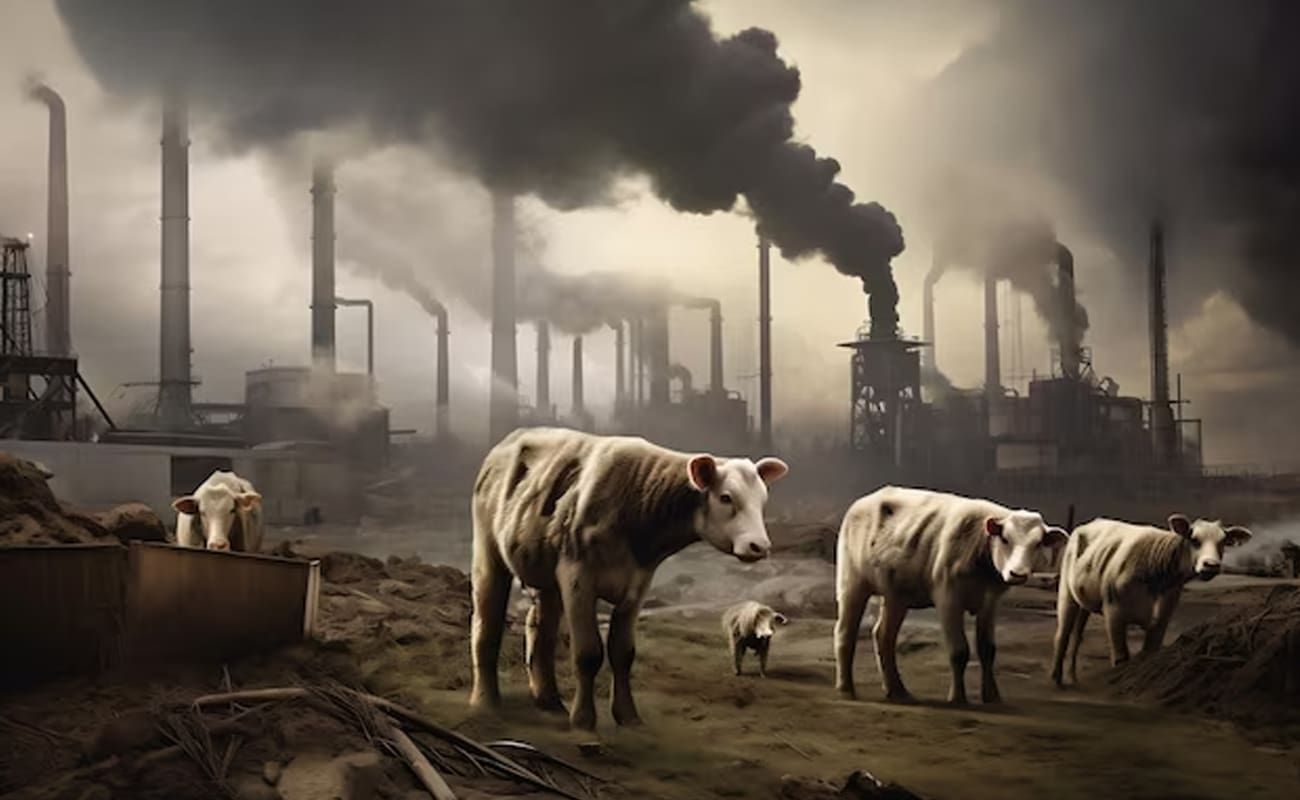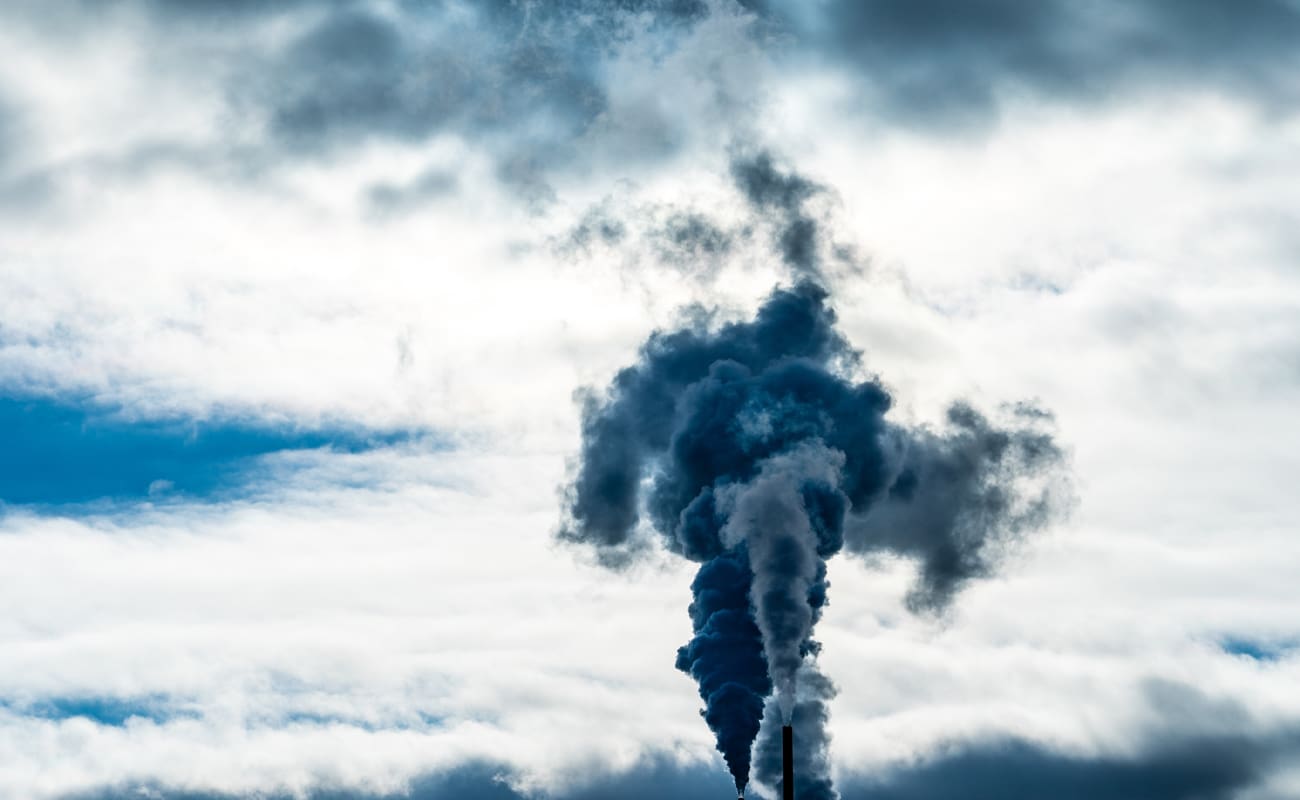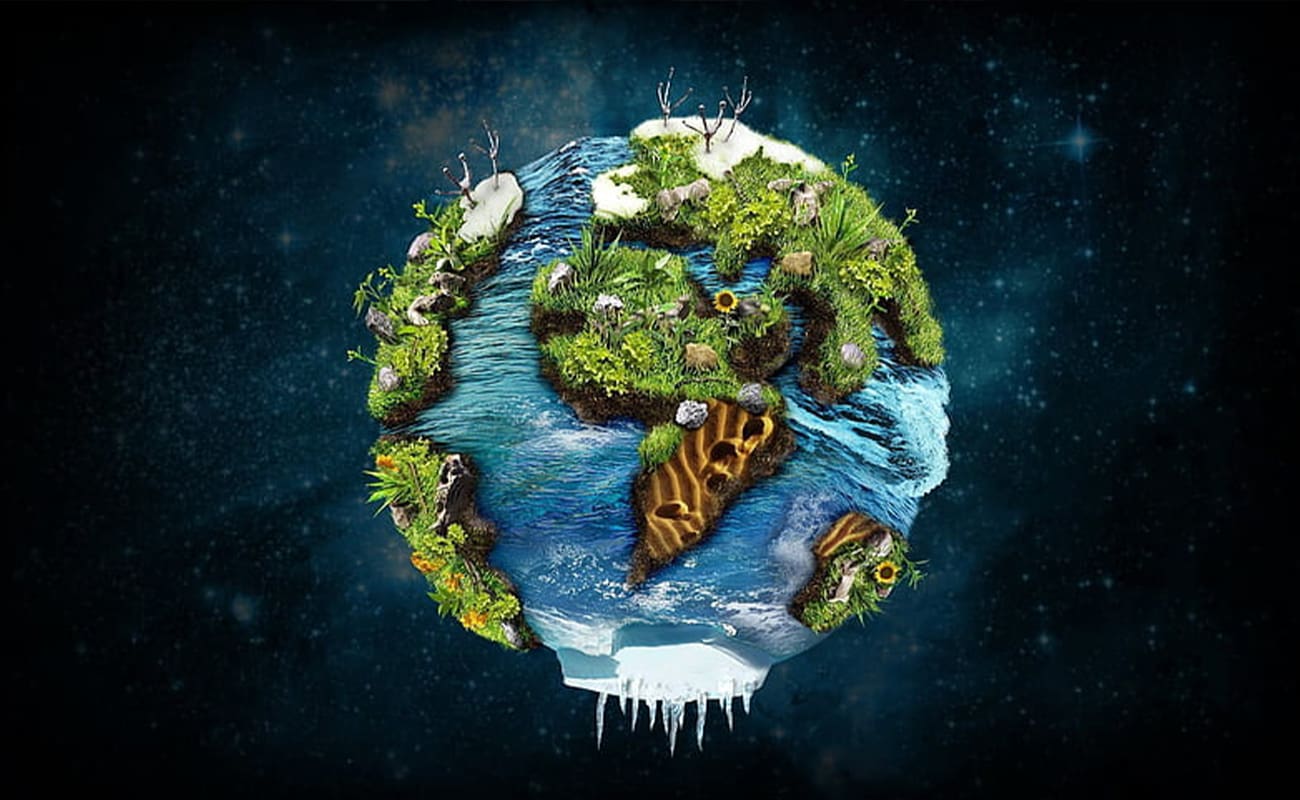This section explores the environmental costs of industrial animal agriculture—costs that are too often hidden behind sanitized packaging and normalized consumption. Here, we reveal the systems that fuel environmental collapse: the mass deforestation of rainforests for pasture and feed crops, the depletion of oceans through industrial fishing, the contamination of rivers and soils by animal waste, and the emission of powerful greenhouse gases like methane and nitrous oxide. These aren’t isolated or accidental outcomes—they are built into the very logic of a system that treats animals as products and the planet as a tool.
From the destruction of biodiversity to the warming of the atmosphere, industrial farming is at the center of our most urgent ecological crises. This category unpacks these layered harms by focusing on three interrelated themes: Environmental Damage, which lays bare the scale of destruction caused by land use, pollution, and habitat loss; Marine Ecosystems, which exposes the devastating impact of overfishing and ocean degradation; and Sustainability and Solutions, which points the way toward plant-based diets, regenerative practices, and systemic change. Through these lenses, we challenge the idea that environmental harm is a necessary cost of progress.
The path forward is not only possible—it is already emerging. By recognizing the deep interconnectedness between our food systems, ecosystems, and moral responsibilities, we can begin to rebuild our relationship with the natural world. This category invites you to explore both the crisis and the solutions, to bear witness and to act. In doing so, we affirm a vision of sustainability not as sacrifice, but as healing; not as limitation, but as liberation—for the Earth, for animals, and for future generations.
Reducing meat intake has become a hot topic in the fight against climate change and environmental degradation. Many experts argue that it is more effective in mitigating the environmental impact of agriculture than reforestation efforts. In this post, we will explore the reasons behind this claim and delve into the various ways in which reducing meat consumption can contribute to a more sustainable and ethical food system. The Environmental Impact of Meat Production Meat production has a significant environmental impact, contributing to deforestation, water pollution, and biodiversity loss. Livestock agriculture is responsible for approximately 14.5% of global greenhouse gas emissions, more than the entire transportation sector. Reducing meat intake can help conserve water resources, as it takes a large amount of water to produce meat compared to plant-based foods. By reducing meat consumption, we can mitigate the environmental impact of agriculture and work towards a more sustainable food system. The …


























































